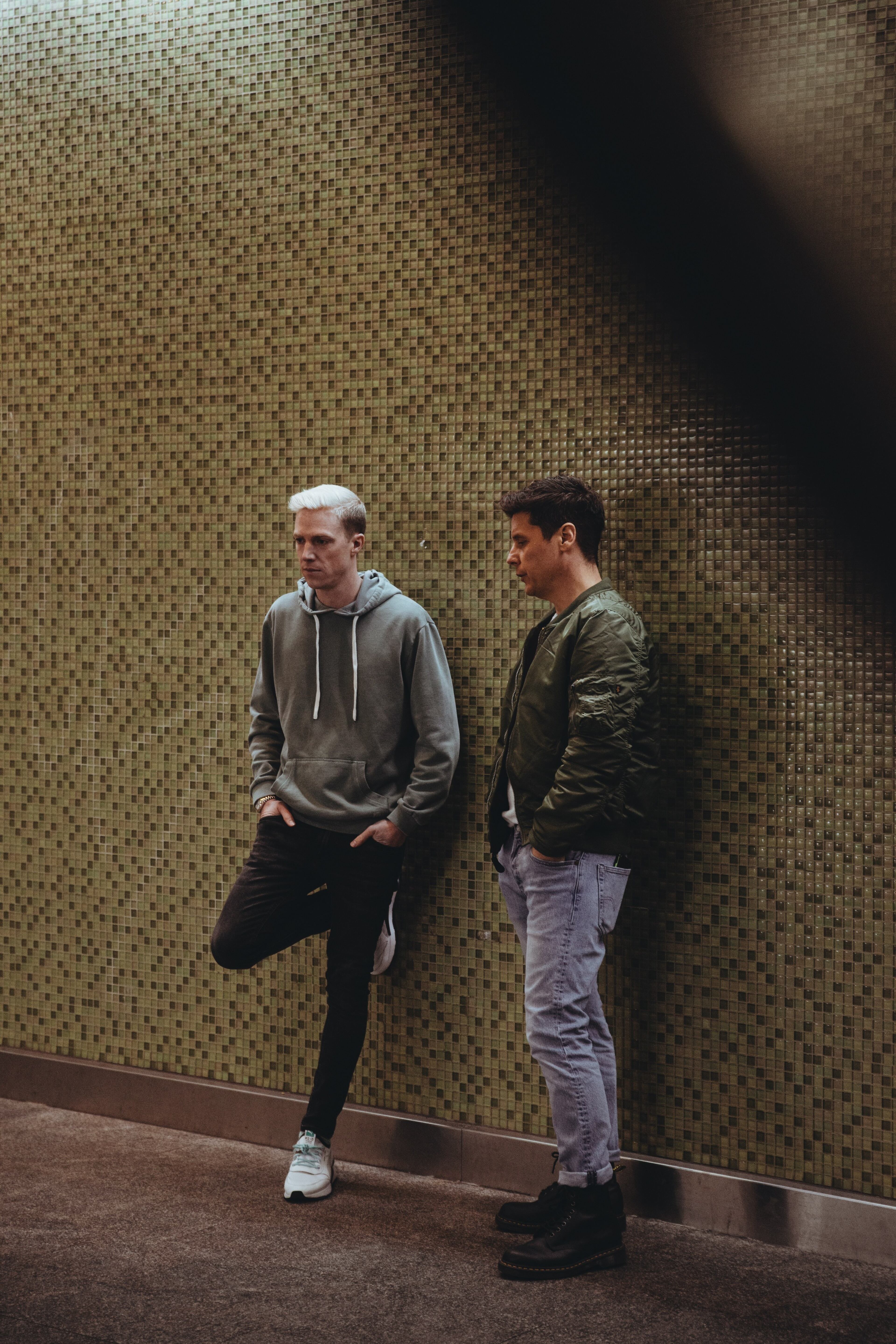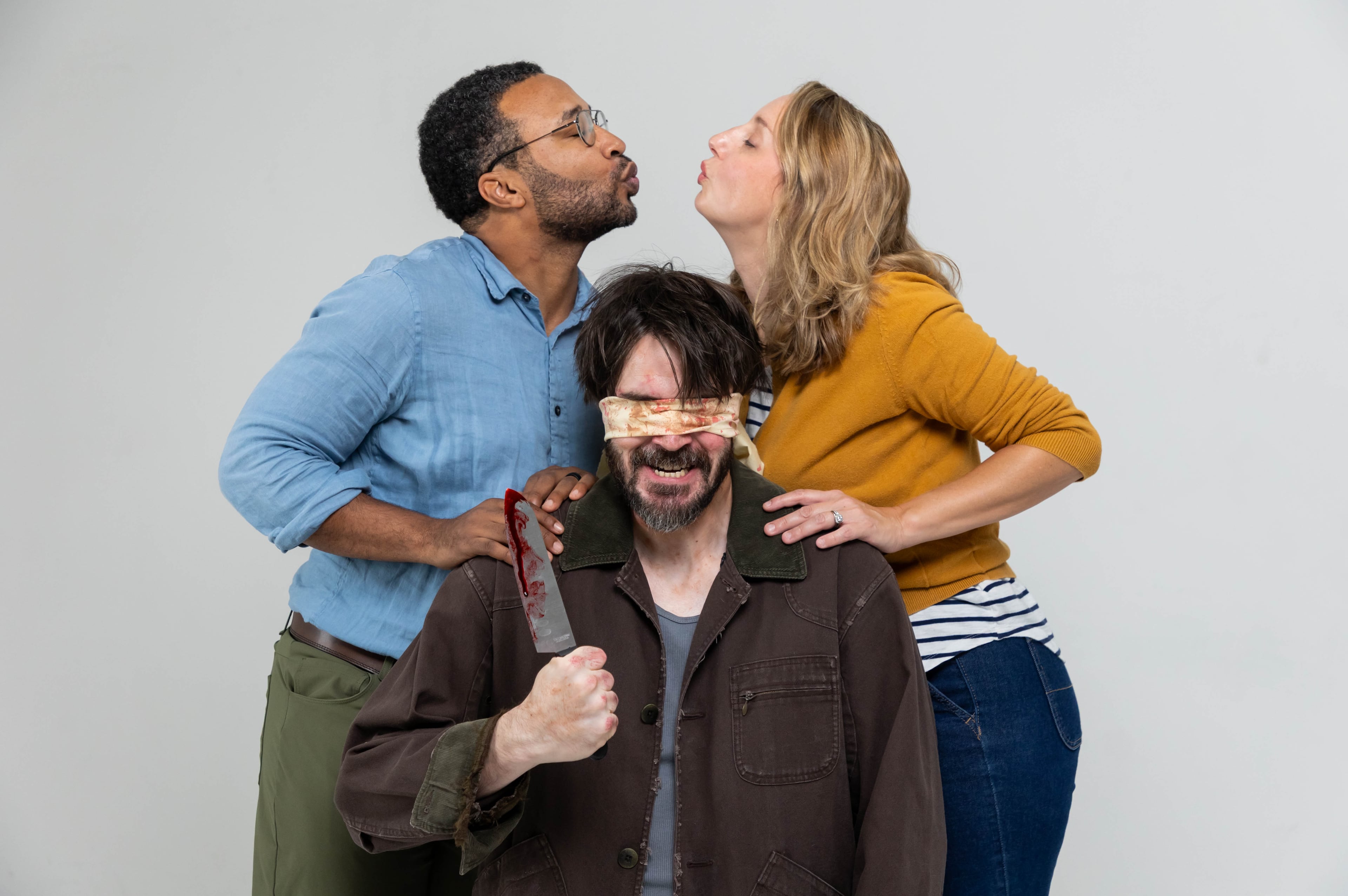Podcasters explore murders of Grateful Dead fans in new series ‘Dead and Gone’

For decades, the Grateful Dead was more than just a band. It was a phenomenon that spawned a cult-like fan base willing to chuck everything and spend months at a time living communally and following the band from town to town as it toured.
While the band espoused LSD-infused peace and love, the Deadhead community drew some bad apples who preyed on the innocent. Every so often, folks would mysteriously disappear, sometimes murdered. Not all the cases would be solved.
Payne Lindsey, the Atlanta documentarian best known for his popular “Up and Vanished” and “Atlanta Monster” true-crime podcasts, teamed up with Jake Brennan, a Boston musician with a popular “Disgraceland” podcast about the criminal misdeeds of famous artists. Their collaborative podcast “Dead and Gone" debuted Tuesday, Oct. 14 and will run 10 episodes. It jumped into the top 10 on Apple’s podcasts and was ranked No. 8 as of Tuesday, Oct. 20.
“It’s exciting,” Lindsey said. “It’s a departure from some of the things I’ve done in the past, but it’s in the true-crime space and infused with musical and historical elements."
At first, the plan was to do an anthology of sorts, focusing on different “Dead”-related crime cases each episode. After revealing the concept to the world a few months ago, they received a call from someone who told them to look at one particularly intriguing case from 35 years ago. After visiting the source in early summer in Portland, Oregon, Lindsey said it was so interesting, they agreed to focus the entire season on that double murder instead.
“It was almost frustrating how good this case was,” Lindsey said. “It came so late in the game. We thought it was impossible to change things up. But it kept coming and poking at us. It took over. Before you knew it, we had forgotten the broad concept. Screw that. Let’s deep dive [into] this case.”
In 1985, after a Dead concert, 22-year-old New Yorker Mary Giola and 18-year-old Connecticut resident Greg Kniffin decided to stay over at a homeless enclave outside San Francisco dubbed Rainbow Village. But while there, they were beaten and killed. One man was accused and eventually convicted of the murders, although the prosecution had no weapon, no witnesses nor any DNA evidence. It was all circumstantial. Over the years, people in the Deadhead community murmured that the wrong man was convicted. But once Lindsey began digging, another potential suspect popped up.
“I think we’ve yielded some intriguing results in a really shockingly short amount of time,” Lindsey said. “There was this entire network of Deadheads who have their own personal theories of an alternative suspect and believe the wrong man was imprisoned.” He met sources who had gone on to live lives far removed from their hippie Deadhead roots but still embraced the music and the “freedom” ethos.
Compared to the Atlanta child murders, Lindsey said he had far less press coverage to dig into for this case. “This has been way more difficult,” Lindsey said. “It was basically a forgotten case that was wrapped up in 1985."
A good starting point was Todd Matthews, former director of case management at the National Missing and Unidentified Persons System, who noticed all these cases a few years ago and posted information about them in one place. The podcasters open the series with Matthews.

The podcast features no actual Grateful Dead music. Lindsey said he reached out to the respective music label, and they declined to participate. “We could have gone down different paths, but the podcast doesn’t hinge on playing the music," he said. So, they created their own. “I like to build the sonic identity for each podcast,” he said.
Neither podcaster was a Dead fan going in, but they now appreciate the music’s appeal. Brennan became interested after he did a single episode of “Disgraceland” about the band. That eventually led to him approaching Lindsey for “Dead and Gone,” which combines his storytelling and narrative chops with Lindsey’s investigative skills.
Brennan said they didn’t have conflicts because “I had no interest in what he does well, and he had no interest in what I do well. He really immerses himself in the story. I like to provide context and history.”
Lindsey has worked with other podcasters before as he did with “Atlanta Monster,” but this was a real melding of styles, he said: “I hope in the end it’s a well-balanced product. You have to take risks if you want to win and keep things fresh.”
They have not reached out to any surviving members of the Grateful Dead because they say the band members aren’t what the podcast is about. They don’t blame the band in any way for these crimes.
“It’s a casualty of the culture they created," said Brennan, whose “Disgraceland” podcast has covered acts from Jerry Lee Lewis and James Brown to Lisa “Left Eye” Lopes and Sid Vicious.
And while Grateful Dead did inspire jam bands such as Phish and Widespread Panic, what they did was truly original. “They were the first to do that, and there is nothing else that has been quite like it ever since in terms of magnitude and the devotion of its fans,” Lindsey said.


